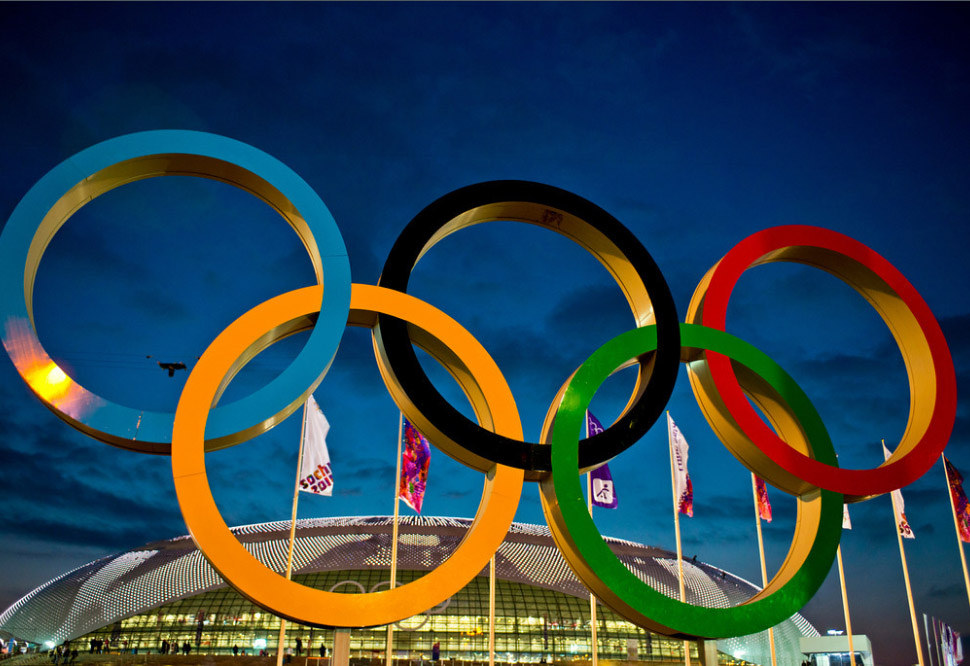
By Michael Pavitt |
The International Olympic Committee (IOC) says it “fully respects” statements made by athletes concerning the ongoing protests in the United States following the death of George Floyd, while the United States Olympic and Paralympic Committee (USOPC) says it will hold an athlete forum to foster change.
There have been seven days of protests across the US and beyond since the killing of Floyd in Minneapolis, for which now-fired white police officer, Derek Chauvin, has been charged with third-degree murder.
Footage of the incident shows Floyd, an African-American, pleading with police that he was unable to breathe as Chauvin knelt on his neck for more than eight minutes, even after Floyd lost consciousness.
Three other police officers who were also present have been fired.
Floyd’s death has led to a renewed focus on the Black Lives Matter movement, which campaigns against violence and systemic racism towards black people.
The focus has largely been on the US, although protests calling for change have spread to other nations.
Sporting organisations and athletes have been among those to comment on the calls for change.
The IOC said it respects the statements shared by athletes, but is working within “its mandate” regarding the Olympic Games.
“The IOC fully respects that many athletes have made statements on social media and in the media,” an IOC spokesperson told insidethegames.
“This is their individual right, and this is a right that we fully support.
“For its part, the IOC will continue to be guided for all Olympic-related matters by the Fundamental Principles of the Olympic Charter, in particular Principle 6, which states: ‘The enjoyment of the rights and freedoms set forth in this Olympic Charter shall be secured without discrimination of any kind, such as race, colour, sex, sexual orientation, language, religion, political or other opinion, national or social origin, property, birth or other status.’
“The IOC will continue its mission to bring the entire world together through sport, whilst respecting the scope of its mandate.”
The IOC earlier this year published guidelines around political protests at the Olympic Games.
The IOC Athletes’ Commission produced the guidelines to differentiate between protests and “expressing views” regarding Rule 50.
Rule 50 states: “No kind of demonstration or political, religious or racial propaganda is permitted in any Olympic sites, venues or other areas.”
The guidelines, published following a joint meeting of the IOC Executive Board and the Athletes’ Commission, prohibit protests and demonstrations at “all Olympic venues”, including medal ceremonies, the field of play and the Olympic Village.
The guidelines proved controversial, although the IOC has claimed it was not restricting freedom of speech, with athletes able to espouse their views in interviews and on social media.
The USOPC has also responded to the ongoing protests by vowing to hold a forum for athletes to understand how they can make a difference.
“Team USA is much more than a group of athletes, they are fellow citizens, members of your community, individuals from all races, genders, economic backgrounds and cultures,” the USOPC said on Twitter.
“Together, we believe change can and will start, one organisation, one team, one person at a time.
“We are committed to being better and part of that change.
“First we are creating a forum for Team USA athletes to discuss their feeling and experiences with their peers, and within that dialogue, an understanding of what we each can do to make a difference together.
“Equality on the field of play, in life, and in our country should not be regarded as a privilege, but rather a right afforded to every human being.
“Team USA stands in solidarity with all who are committed to be forces for good.
“This is an opportunity to shape a better, more just America that represents, respects, and supports the hopes and dreams of everyone.”
The USOPC last year placed two athletes on probation following protests at the Pan American Games in Lima, warning others who make similar stands will be given harsher punishments.
USOPC chief executive Sarah Hirshland had praised fencer Race Imboden and hammer thrower Gwen Berry for their admirable decisions to be an “active citizen” when demonstrating.
Imboden also took a knee at the Games in Lima in protest at racism, gun control, the mistreatment of immigrants and President Donald Trump.
Berry later raised her fist at the conclusion of her medal ceremony in Lima, an act which mirrored Olympic sprinters Tommie Smith and John Carlos on the podium at the Mexico 1968 Olympic Games, which served as a civil rights protest against racial discrimination.
The Lima 2019 protests raised suggestions athletes may stage podium protests at the Tokyo 2020 Olympic Games, which have now been postponed until 2021 because of COVID-19.
Republished with permission from insidethegames.biz.